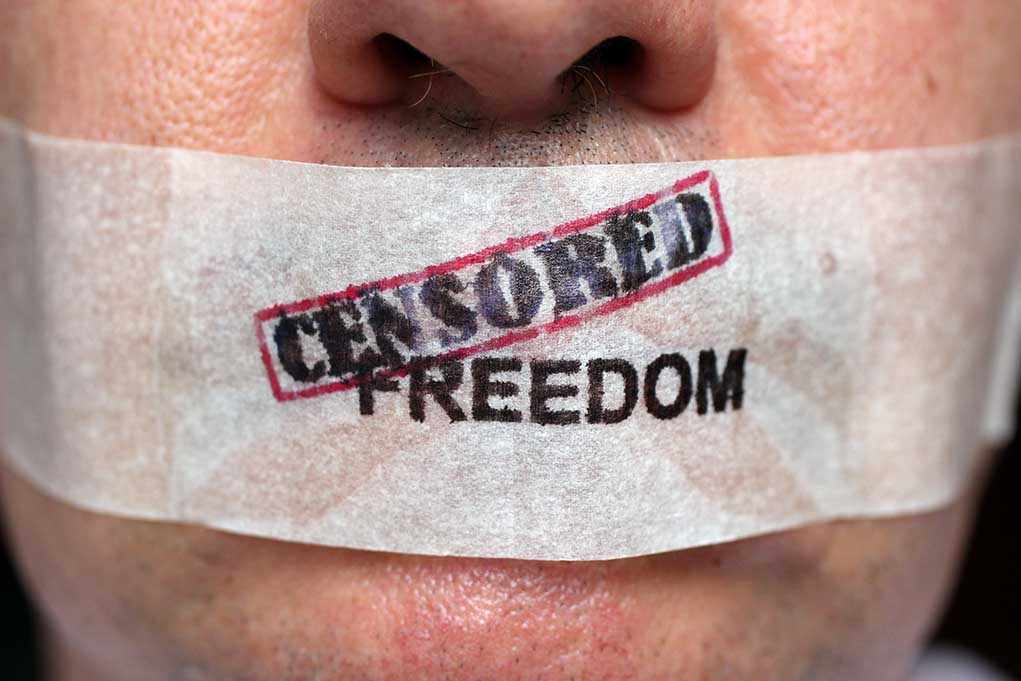
Attorney General Pam Bondi’s promise to prosecute “hate speech” has ignited fierce opposition from conservatives, forcing the Trump administration into damage control as constitutional scholars warn of a dangerous assault on First Amendment freedoms.
Story Snapshot
- Bondi pledged to criminally prosecute hate speech, sparking conservative backlash over constitutional violations
- FCC leadership and civil liberties experts warn that hate speech prosecutions are fundamentally unconstitutional
- Conservative base expresses alarm that Trump’s Justice Department could mirror leftist censorship tactics
- First Amendment protections remain robust despite government attempts to restrict speech
Bondi’s Constitutional Misstep Alarms Conservative Base
Attorney General Pam Bondi’s recent statements promising to prosecute individuals for “hate speech” have triggered immediate pushback from Trump’s conservative supporters, who view such rhetoric as fundamentally incompatible with constitutional principles. The controversy erupted when Bondi suggested criminal penalties for speech deemed hateful, directly contradicting established First Amendment jurisprudence that protects even offensive expression from government censorship. Conservative commentators and constitutional scholars quickly denounced the remarks, warning that such prosecutions would mirror the authoritarian tactics previously employed by leftist administrations.
The backlash intensified as prominent conservative voices expressed concern that the Trump administration might inadvertently adopt the same speech-restricting policies that patriots have long opposed. Legal experts emphasized that the Supreme Court has consistently ruled against hate speech prosecutions, establishing clear precedent that protects controversial and unpopular expression. This constitutional framework serves as a crucial safeguard against government overreach, preventing authorities from selectively targeting speech based on ideological preferences or political convenience.
First Amendment Framework Rejects Government Speech Control
The First Amendment’s broad protections have evolved through landmark Supreme Court decisions that consistently reject government attempts to regulate speech based on content or viewpoint. Historical precedents from cases like Terminiello v. Chicago established that speech may provoke unrest and still receive constitutional protection, while New York Times Co. v. United States further limited government censorship authority. These rulings create an expansive shield for expression, recognizing that free speech serves democracy’s highest purposes when it challenges prevailing orthodoxies.
Constitutional scholars note that the Supreme Court has recognized only narrow exceptions to First Amendment protections, specifically for incitement to imminent lawless action, true threats, and obscenity. Importantly, these exceptions do not include “hate speech” as a distinct category subject to criminal prosecution. The Court has repeatedly emphasized that the remedy for offensive speech is more speech, not government censorship, reflecting the founders’ understanding that bureaucratic authorities cannot be trusted to determine which ideas deserve protection.
Conservative Movement Demands Constitutional Fidelity
The conservative response to Bondi’s comments reflects deeper concerns about maintaining constitutional consistency within the Trump administration. Patriots who supported Trump specifically to combat leftist authoritarianism now worry that similar tactics might emerge from their own Justice Department. This tension highlights the critical importance of adhering to constitutional principles regardless of political convenience or popular pressure to restrict offensive expression.
Civil liberties organizations across the political spectrum have united in opposition to hate speech prosecutions, recognizing that such enforcement mechanisms inevitably expand beyond their intended targets. The historical pattern demonstrates that speech restrictions initially designed to combat genuine threats gradually encompass broader categories of expression, ultimately silencing legitimate political discourse. Conservative activists understand this dynamic and demand that the Trump administration reject the censorship playbook that characterized previous Democratic administrations’ approach to controversial speech.
Sources:
First Amendment Essay – Congress Constitution
First Amendment to the United States Constitution – Wikipedia
Constitutional Amendments Amendment 1 Freedom of Speech – Reagan Library
First Amendment Timeline – MTSU First Amendment Encyclopedia
What Does Free Speech Mean? – US Courts
Free Speech Century: How First Amendment Came to Life – Columbia Law
Censorship and Intellectual Freedom – American Library Association
First Amendment Civil Liberties – NY Courts History











